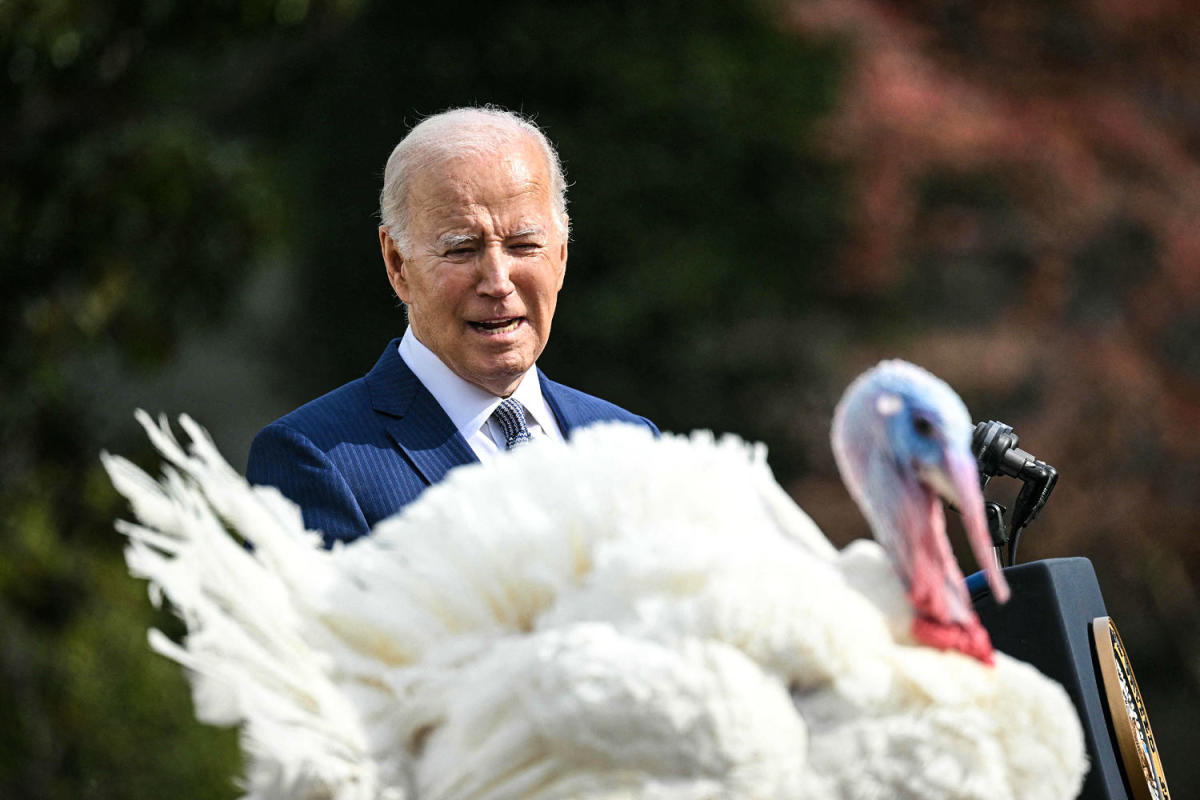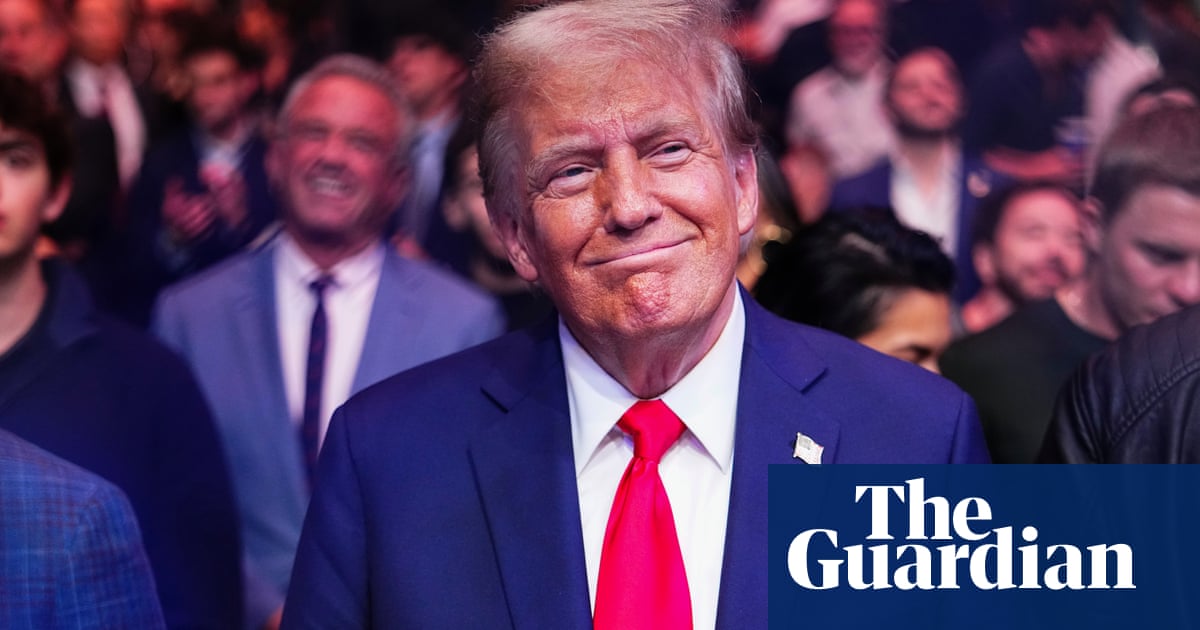Virginia must restore more than 1,600 people to the voter rolls after a federal judge ruled on Friday that the state had illegally removed them.
US district judge Patricia Giles granted an injunction request brought against Virginia election officials by the justice department, which claimed the voter registrations were wrongly canceled during a 90-day quiet period ahead of the November election that restricts states from making large-scale changes to their voter rolls.
“The ruling is a big victory. All of the eligible voters who were wrongfully purged from the voter rolls will now be able to cast their ballots,” said Ryan Snow, a lawyer with the Lawyers’ Committee for Civil Rights Under Law, one of the groups that sued the state over the policy. “The judge stopped the outrageous mass purge of eligible voters in Virginia.
The voters had been flagged for removal after Virginia’s Republican governor Glenn Youngkin issued an executive order on 7 August requiring election officials to check voter rolls against DMV records on a daily basis for non-citizens. Voting rights groups have long warned that such comparisons are an unreliable way to check for citizenship because someone can become a naturalized citizen after getting their driver’s license or may accidentally check the wrong box at the motor vehicles department.
Thomas Sanford, an attorney with the Virginia attorney general’s office, told the judge at the conclusion of Friday’s hearing that the state intends to appeal her ruling.
The justice department and private groups, including the League of Women Voters, said many of the 1,600 voters whose registrations were canceled were in fact citizens whose registrations were canceled because of bureaucratic errors or simple mistakes like a mischecked box on a form.
Justice department lawyer Sejal Jhaveri said during an all-day injunction hearing Thursday in Alexandria, Virginia, that’s precisely why federal law prevents states from implementing systematic changes to the voter rolls in the 90 days before an election, “to prevent the harm of having eligible voters removed in a period where it’s hard to remedy”.
Giles said Friday that the state is not completely prohibited from removing non-citizens from the voting rolls during the 90-day quiet period, but that it must do so on an individualized basis rather than the automated, systematic program employed by the state.
State officials argued unsuccessfully that the canceled registrations followed careful procedures that targeted people who explicitly identified themselves as non-citizens to the Department of Motor Vehicles.
Charles Cooper, a lawyer for the state, said during arguments Thursday that the federal law was never intended to provide protections to non-citizens, who by definition can’t vote in federal elections.
“Congress couldn’t possibly have intended to prevent the removal ... of persons who were never eligible to vote in the first place,” Cooper argued.
The plaintiffs who brought the lawsuit, though, said that many people are wrongly identified as non-citizens by the DMV simply by checking the wrong box on a form. They were unable to identify exactly how many of the 1,600 purged voters are in fact citizens – Virginia only identified this week the names and addresses of the affected individuals in response to a court order – but provided anecdotal evidence of individuals whose registrations were wrongly canceled.
Cooper acknowledged that some of the 1,600 voters identified by the state as non-citizens may well be citizens, but he said restoring all of them to the rolls means that in all likelihood, “there’s going to hundreds of non-citizens back on those rolls. If a non-citizen votes, it cancels out a legal vote. And that is a harm,” he said.
He also said that with the election less than two weeks away, it’s too late to impose the burden of restoring registrations on busy election workers, and said the plaintiffs who filed their lawsuits roughly two weeks ago should have taken action sooner.
State officials said any voter identified as a non-citizen was notified and given two weeks to dispute their disqualification before being removed. If they returned a form attesting to their citizenship, their registration would not be canceled.
after newsletter promotion
In media interviews, Youngkin has questioned the justice department’s motives for filing the lawsuit.
“How can I as a governor allow non-citizens to be on the voter roll?” Youngkin asked rhetorically during an appearance of Fox News Sunday.
Donald Trump, who is already spreading baseless claims about fraud, also weighed in on the case after the justice department filed a lawsuit to stop the removals.
“Virginia cleaned up its voter rolls and got rid of thousands and thousands of bad votes. And the justice department sued them, that [sic] they should be allowed to put those bad votes and those illegal votes back in,” he said earlier this month.
Jason Miyares, Virginia’s Republican attorney general, issued a statement after Friday’s hearing, criticizing the ruling.
“It should never be illegal to remove an illegal voter,” he said. “Yet, today a Court – urged by the Biden-Harris Department of Justice – ordered Virginia to put the names of non-citizens back on the voter rolls, mere days before a presidential election. The Department of Justice pulled this shameful, politically motivated stunt 25 days before Election Day, challenging a Virginia process signed into law 18 years ago by a Democrat governor and approved by the Department of Justice in 2006.”
Nearly 6 million Virginians are registered to vote.
A similar lawsuit was filed in Alabama, and a federal judge there last week ordered the state to restore eligibility for more than 3,200 voters who had been deemed ineligible non-citizens. Testimony from state officials in that case showed that roughly 2,000 of the 3,251 voters who were made inactive were actually legally registered citizens.

 German (DE)
German (DE)  English (US)
English (US)  Spanish (ES)
Spanish (ES)  French (FR)
French (FR)  Hindi (IN)
Hindi (IN)  Italian (IT)
Italian (IT)  Russian (RU)
Russian (RU)  1 month ago
1 month ago























Comments